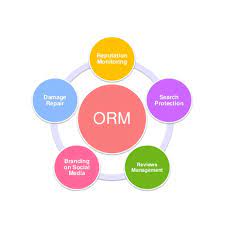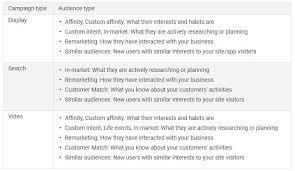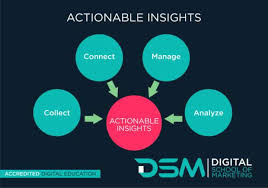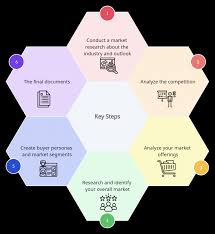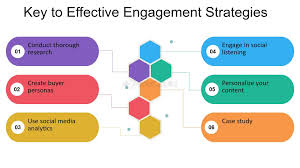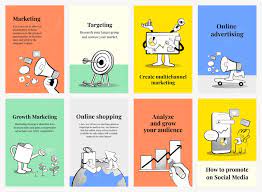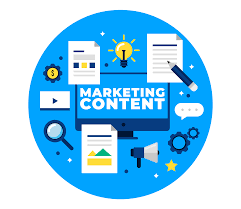Mastering Reputation Management Strategies in Digital Marketing
The Importance of Reputation Management in Digital Marketing
In today’s digital age, reputation management plays a crucial role in the success of businesses. With the rise of social media and online review platforms, consumers have more power than ever to share their opinions and experiences with a global audience. This makes it essential for companies to actively manage their online reputation to maintain trust and credibility.
Reputation management in digital marketing involves monitoring, influencing, and maintaining the public perception of a brand or individual across various online channels. It encompasses strategies aimed at building a positive reputation, addressing negative feedback, and engaging with customers to enhance brand perception.
Key Aspects of Reputation Management:
- Online Reviews: Positive reviews can significantly impact consumer trust and influence purchasing decisions. Monitoring and responding to reviews on platforms like Google My Business, Yelp, and TripAdvisor is essential for maintaining a positive online reputation.
- Social Media Presence: Social media platforms are powerful tools for shaping brand perception. Regularly engaging with followers, addressing customer queries or complaints promptly, and sharing valuable content can help build a strong online presence.
- Crisis Management: In the event of negative publicity or a crisis situation, swift and transparent communication is key. Addressing issues openly, taking responsibility where necessary, and demonstrating a commitment to resolving issues can help mitigate reputational damage.
- Search Engine Optimization (SEO): Optimizing online content to ensure positive information about the brand ranks higher in search engine results can help push down negative content. This proactive approach can shape the narrative surrounding the brand.
The Benefits of Effective Reputation Management:
A strong online reputation can lead to increased credibility, customer loyalty, and business growth. By actively managing their reputation in digital marketing channels, businesses can enhance brand perception, attract new customers, and differentiate themselves from competitors.
Ultimately, reputation management is an ongoing process that requires dedication and strategic planning. By prioritising transparency, authenticity, and customer engagement in their digital marketing efforts, businesses can build a resilient online reputation that withstands challenges and drives success.
Top 7 Tips for Effective Reputation Management in Digital Marketing
- Monitor online mentions of your brand regularly.
- Respond promptly and appropriately to both positive and negative feedback.
- Provide excellent customer service to build a positive reputation.
- Create valuable and engaging content to showcase your expertise.
- Utilize social media platforms effectively to engage with your audience.
- Collaborate with influencers or brand ambassadors to reach a wider audience.
- Be transparent and honest in all your communications.
Monitor online mentions of your brand regularly.
Monitoring online mentions of your brand regularly is a fundamental aspect of effective reputation management in digital marketing. By staying vigilant and proactive in tracking what customers, competitors, and the general public are saying about your brand across various online platforms, you can swiftly address any issues, respond to feedback, and leverage positive comments to enhance your brand’s reputation. Regular monitoring allows you to stay informed, identify trends, and take timely action to maintain a positive online presence and build trust with your audience.
Respond promptly and appropriately to both positive and negative feedback.
In the realm of reputation management in digital marketing, a crucial tip is to respond promptly and appropriately to both positive and negative feedback. Acknowledging and engaging with positive feedback helps reinforce customer loyalty and build a strong brand image. On the other hand, addressing negative feedback promptly and constructively demonstrates a commitment to customer satisfaction and can turn a potentially damaging situation into an opportunity for improvement and relationship-building. By actively engaging with all types of feedback, businesses can showcase their responsiveness and dedication to customer care, ultimately enhancing their online reputation.
Provide excellent customer service to build a positive reputation.
Providing excellent customer service is a fundamental tip in reputation management for digital marketing. By prioritising exceptional customer experiences and addressing queries or concerns promptly and effectively, businesses can build trust and loyalty among their customers. Positive interactions with customers not only help in resolving issues but also showcase a company’s commitment to customer satisfaction. This focus on delivering outstanding service contributes significantly to shaping a positive reputation online, fostering brand advocacy, and differentiating the business in a competitive digital landscape.
Create valuable and engaging content to showcase your expertise.
In the realm of reputation management in digital marketing, a key tip is to create valuable and engaging content that showcases your expertise. By producing high-quality content that educates, entertains, or informs your audience, you not only establish yourself as a trusted authority in your industry but also attract and retain followers who value your insights. This approach not only enhances your brand’s credibility but also helps to build a loyal community of engaged customers who see you as a valuable resource in their online journey.
Utilize social media platforms effectively to engage with your audience.
To effectively manage your reputation in digital marketing, it is crucial to leverage social media platforms as a powerful tool for engaging with your audience. By actively interacting with followers, responding to comments and messages, and sharing relevant and valuable content, you can establish a strong online presence that fosters trust and loyalty among your customers. Engaging with your audience on social media not only allows you to address their queries and concerns promptly but also enables you to showcase the human side of your brand, building meaningful connections that enhance brand perception and drive positive engagement.
Collaborate with influencers or brand ambassadors to reach a wider audience.
Collaborating with influencers or brand ambassadors is a powerful tip for enhancing reputation management in digital marketing. By partnering with individuals who have a strong online presence and a loyal following, businesses can leverage their influence to reach a wider audience and build credibility. Influencers and brand ambassadors can help amplify brand messaging, create authentic content, and engage with their followers on behalf of the brand. This strategic collaboration not only expands the reach of the brand but also allows for targeted communication that resonates with specific audience segments, ultimately contributing to a positive brand image and increased trust among consumers.
Be transparent and honest in all your communications.
Transparency and honesty are fundamental principles in effective reputation management within digital marketing. By being open and truthful in all communications, businesses can build trust with their audience and establish a positive brand image. Clear and honest communication fosters credibility and authenticity, leading to stronger relationships with customers and stakeholders. Embracing transparency not only enhances brand reputation but also demonstrates integrity and a commitment to ethical practices, ultimately contributing to long-term success in the digital landscape.



